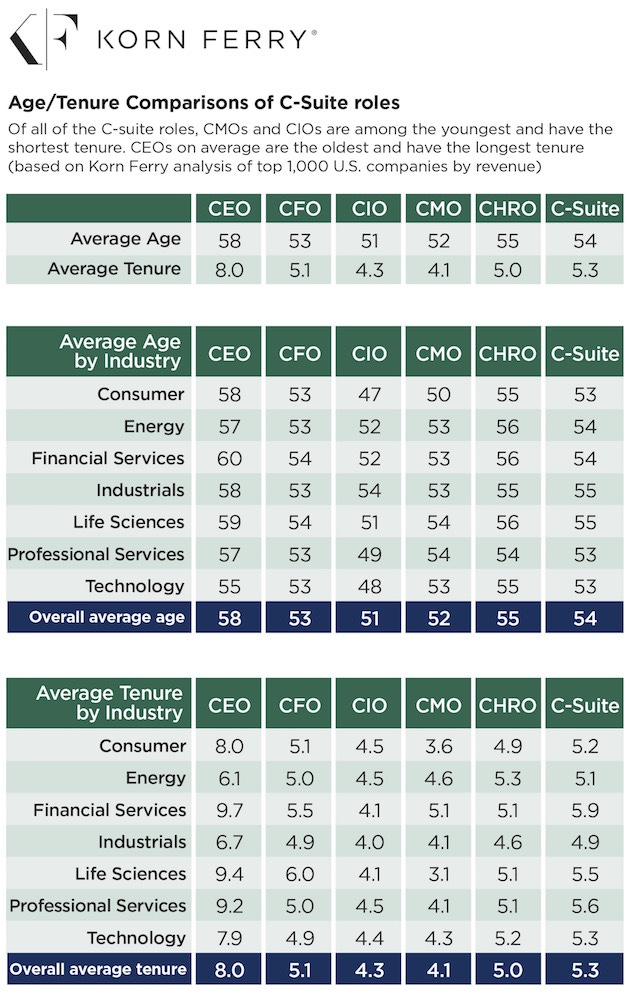Always. Be. Interviewing. (The FAQ)
Networking is too late. You need to be meeting the people who matter.
I’ve been giving the same advice to co-workers and friends for almost decade. I tell them, “I am always interviewing. You should be, too.” The reactions are mixed.
“Good for you. I wish I felt motivated to do that.”
“How do you do that and hold down a full-time job?”
“Why would you do that? You have a job.”
“I could never do that. It would feel too dishonest.”
“What if your current employer finds out?”
Here’s everything you need to know about Always. Be. Interviewing.
Why should I Always. Be. Interviewing.?
You need to Always. Be. Interviewing. Why?
Interviewing is a skill. It requires continually practicing and improving.
It forces you to keep your resume up-to-date. Capture the metrics you’ll need now.
You need to be following the trends of which companies are looking for what roles so you know what skills and experience to pick up next. And who to be connecting with more informally.
Meet recruiters, headhunters, future employers and co-workers. Believe it or not, I’ve become good friends with people I’ve interviewed with but never worked with!
Be prepared. Love affair with layoffs lately, anyone? Your employer will turn your 17 years of dedicated contribution, your blood, sweat, and tears into a cell on a spreadsheet in 17 seconds flat.
I’m just going to network. Why do I need to interview?
Networking or making connections is also very important. We’ve all been told, “It’s not what you know, it’s who you know.” In 2024, it’s “It’s not who you know, it’s who you know that will hire you tomorrow.” Networking is a slow burn. It’s keeping up with people you may or may not have any reason to other than maybe, someday, you can help each other out. And, yes, most of the people who can actually help you are going to be the more random connections you have.
Here’s why random connections matter more in a job search:
Further removed, exponential opportunity. There are more former co-workers of former co-workers, friends of friends, and random family connections than you’ll ever have of “family and close friends.” The numbers are on your side.
Proximity = sameness. The closer you are with someone currently (especially current co-workers) the more likely you are to orbit the same opportunities and people. It’s like when that one friend decides to up and move to Hawaii and you’re so much more excited than if your sibling is moving to the same state as you. Now you have a connection in a beautiful vacation spot. Hopefully, they have a free guest room waiting for you.
The well is tapped. You go to the people closest to you for favors and advice and help often. People further removed are generally delighted to get new requests from new people.
The Universe likes random. This is also just how the Universe works. Seemingly random things come together. Call it coincidence or fate or law of attraction or faith. The more random, the better.
So yes, you also need to constantly be making new connections. Interviewing, though, forces you to do all the things above. You need both.
What do I say to recruiters?
You tell the truth, of course. First, I always like to answer the standard “Why are we talking today?” or “Why are you looking?” not about me but about them. It’s not about “I’m looking for new opportunities that really challenge me blah blah blah.” It’s about this specific opportunity.
Do your research. Give them three specific reasons you applied.
“I saw this opening and was immediately drawn to the description of your culture. Your commitment to diversity and embracing failure are two things I value highly. I also love your mission because [ ] … And I’ve used your product for years as a consumer and I think [ ].”
You can also use a simple, true statement:
“I’m happy where I’m at. I’m learning a lot. I am also exploring new opportunities.”
What if they push or you get the sense they are trying to sniff out BS? Be a broken record.
Recruiter: “Okay, but if you’re happy where you are, why are you looking?”
You: “I am happy where I’m at. I’m learning a lot. I am also exploring new opportunities.”
Just because someone asks you another question doesn’t mean you have to come up with another answer. In legalese, this is the “Asked & Answered” objection. Smile, and say it again, slowly.
Where & When do I interview?
This one is for if you have a current full-time job.
Do your applying on the weekends or in the evenings. For interviews, it can get tricky.
Here are some tips on where and when to interview:
Recruiters understand the need to work around a “9-5” schedule. Ask for times before or after your work hours. Remote-friendly companies likely have flexible interview times given the time zone differences.
Use your lunch hour. If you work in the office, head to a co-working space or borrow a conference room at a friend’s nearby office.
If it’s a longer half- or full-day of interviews, take the day off. You aren’t obligated to tell anyone what you’re doing on your day off.
Make sure your personal calendar or appointments aren’t visible on your work calendar. That will raise some eyebrows.
This isn’t about “being sneaky.”
If, in general, there were good leaders who truly cared about their people, they would never use interviewing for other companies against you. So you could tell your leader outright, “I’m exploring other opportunities. I’ve learned a lot here but I also want to see how I can grow my career.” I know this seems far-fetched and for the most part, it is.
My former team members have shared these things openly with me in our career growth and development conversations, though. My reaction? “How can I help you grow in your current role? And … how can I help you reach your career goals, even if that’s not here?”
This is about playing the game.
Play the game to your advantage. No one is going to walk up to you and provide you a clear path to your career goals. You have to know where you’re going and why and create all the right moves to get there.
I would recommend in parallel working with your leader to ask about growth opportunities, promotion potential, and molding your current role to what you want. This isn’t an “I’m unhappy here” signal but it will clue (good) managers into your desire for more. They won’t be as surprised if you come to them with, “I have an offer …”
And, side note, you have more control over your current role than you think. Marcus Buckingham and team have done global research on this.
Researchers asked employees, “Do you think you have the freedom to modify your job to fit yourself better?” And 73% agreed or strongly agreed they did. But 18% actually do. This is an attitude-behavior consistency issue!
I just started a new job. Do I have to Always. Be. Interviewing.?
Congratulations! Day 1 of your new job. You’re fresh. You’re ready. You’re eager to hit the ground running. You have a ton to learn and dozens of people to meet. You have quick wins to secure and a reputation to build.
Do you also need to Always. Be. Interviewing.?
Yes. But at this point, you become more of a passive job-seeker. If a recruiter proactively contacts you, I recommend “picking up the phone” as often as possible. Make the connection now. One of the biggest mistakes you can make is to wait to meet recruiters, especially headhunters, until you desperately need them.
I would also give yourself 6-12 months to “get settled.” If your role is more entry- or mid-level, you could go up to 12 months without responding to recruiters or interviewing. If your role is more senior or executive, I would recommend waiting no more than 6 months.
Why is it more important for senior and executive-level leaders to Always. Be. Interviewing.? Executives have a more volatile political landscape to navigate in most companies. And potentially a shorter tenure. Looking at you, CMOs.
I just couldn’t do that to my current employer. It’s too dishonest.
First of all, it’s not. It’s not unethical or dishonest to build your career.
And, it is completely legal for your employer to terminate your employment without cause or warning. Every state in the US is “at-will” employment except for Montana.1
Even though most employers provide some severance payment, it is not required. And it is likely to be only a few weeks or months. Unemployment payments are a joke. The US is one of the worst if not the worst when it comes to protecting employees.
65% of Americans live paycheck to paycheck, making it the financial lifestyle of choice.2
Take a moment and think about how long you’d be able to pay your mortgage and feed your family if you were unemployed as of today with no severance. Then tell me again that you think interviewing while employed is dishonest.
Oops, I got an offer! Now what?
I know that is downright blasphemous to say right now. That someone would have the audacity to accidentally get an offer while there are hundreds of thousands of laid off people looking for work.
If you received an offer based on your ABI side hustle, congratulations! You just have to answer one question: Is it what you want?
That is inclusive of
Base salary
Bonus
RSUs or stock options
Growth potential
Culture (make sure you’ve backchanneled!)
Your future manager
Your future peers, team members
Role & responsibilities
Budget and support
If it is what you want, accept it. I always advise people to never go in for a “dive and save” by their current employer. It’s disingenuous on both sides. (There may be exceptions for more senior or executive-level roles.)
If it’s not exactly what you want, you could use it as leverage to get that promotion or pay raise. It’s not my personal style, but it’s up to you.
I still have more questions!
I hope these FAQs were helpful. There are probably more so I may do a Part II in the future. Connect with me on LinkedIn if you have more questions. I coach people every week who have adopted the Always. Be. Interviewing. mindset.
Final Thoughts
In a perfect world, I wouldn’t even have to write this article.
Employers would care deeply about business results, serving customers, and the growth, development and potential of their employees.
Employees would work hard, deliver results, serve customers and be honest about what they want and the help they need to get there.
Instead, we are in a constant dance. You need to pick the venue, song, style that make you feel alive every day.
Don’t get complacent. Don’t stay in a paycheck-induced trance.
Don’t let your career just happen to you.
Always. Be. Interviewing.
https://journals.sagepub.com/doi/10.1177/8756479318781798
https://www.barrons.com/articles/living-paycheck-consumer-economy-bb16b8e8







